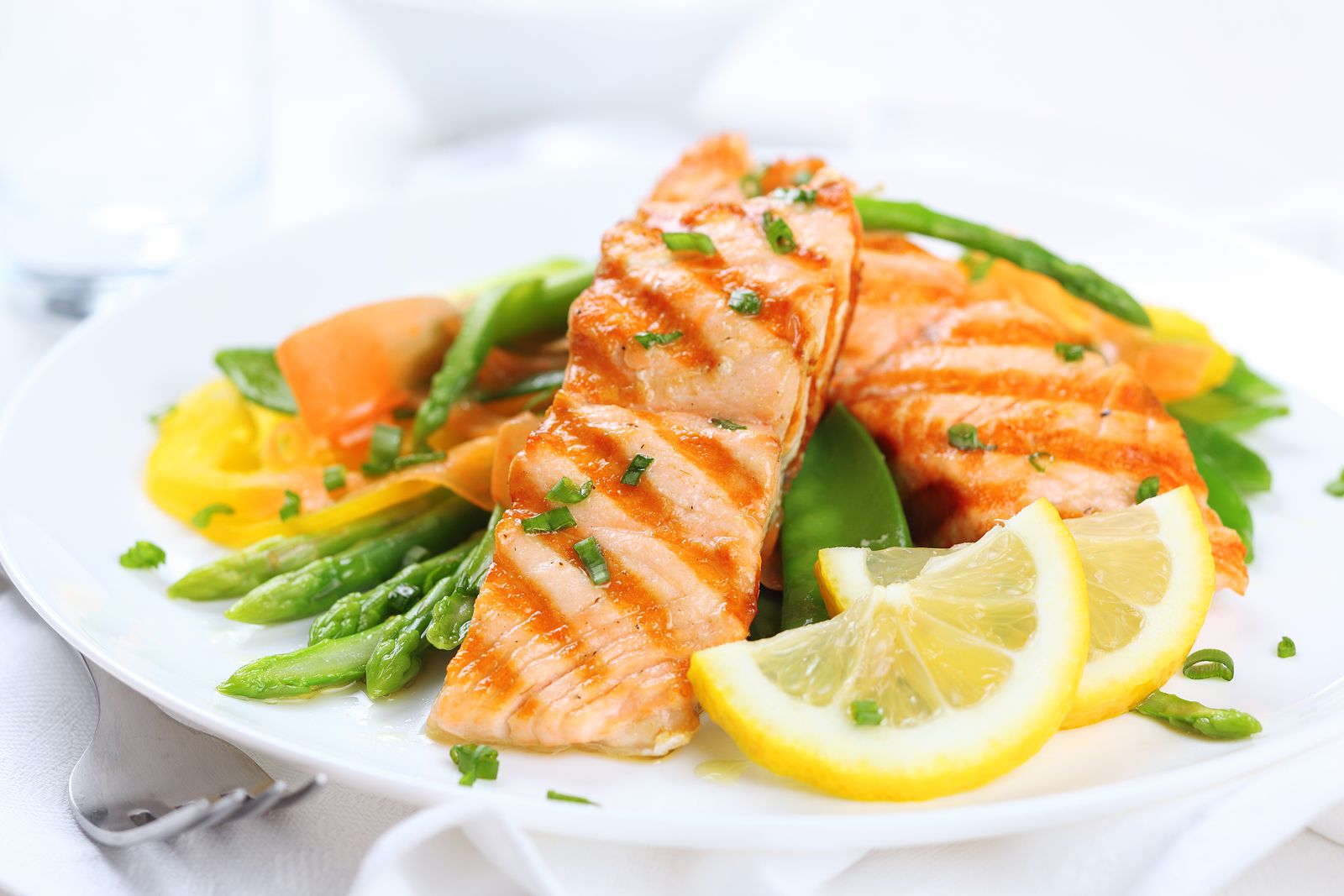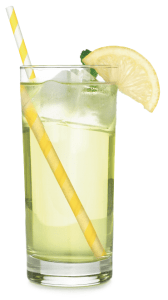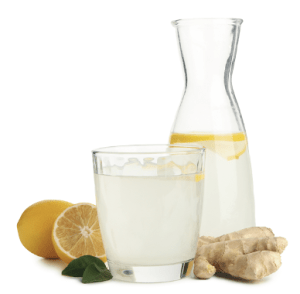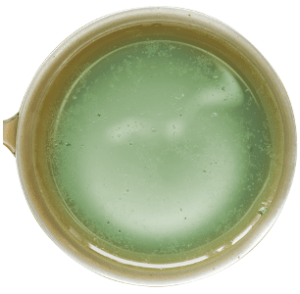
Hippocrates, widely regarded as the Father of Medicine, famously said, “Let food be thy medicine and let medicine be thy food.” He was spot on. What we eat and drink could very well be the primary indicator of whether a person develops cancer, overcomes it or avoids it entirely. And eating the right types of food if you do find yourself battling cancer or another chronic disease is vital.
Think of the body as a machine that needs quality energy sources to run smoothly. The proper types of satiating protein, low-glycemic carbohydrates and healthful fats are the fuels that “machine” needs to function optimally. “Dead foods” like processed cookies, crackers, and macaroni and cheese are full of empty calories, the wrong type of carbohydrates, and a laundry list of hard-to-read and potentially problematic ingredients.
On the other hand, real food—fresh, organic fruits and vegetables, meats (particularly organ meats), nuts and healthy oils—can truly heal.
Let’s take a closer look at the foods you should eat for energy and wellness and those you should avoid at all costs.
For good health in general, particularly if you are following an anti-cancer diet, you’ll want to eat foods that are low in carbohydrates, moderate in protein and high in healthy fats. This way of eating is sometimes referred to as a ketogenic diet, and it completely changes the way your body uses energy.
Back in 2012, professor and researcher Dr Thomas Seyfried, PhD, published revolutionary findings that suggested cancer is a metabolic disease and, as such, has a metabolic cure. Expanding on the findings of Otto Warburg, who proposed that all cancers are a disease of energy metabolism, Dr Seyfried’s studies revealed that lab mice with brain tumors responded remarkably well to fasting and calorie restriction.
Dr Seyfried discovered that reducing or restricting carbohydrates “starved” cancer cells and stopped them from growing. He postulated that putting the body into a ketogenic state by following a very-low-carb diet would have similar effects. This is one of the reasons we often recommend keto or a modified keto diet to our patients diagnosed with cancer.
Normally, your body’s go-to energy source is glucose. Carbohydrates are high in glucose, so when you don’t eat many carbs, the body resorts to burning fat for fuel instead in a process called ketosis. In ketosis, the liver breaks down fat cells called ketone bodies to use as an alternate energy source. And because cancer cells use glucose for energy but can’t use these ketone bodies, it’s thought that the ketogenic diet can help “starve” these malignant cells.
You must consume very few carbohydrates to get your body into a ketogenic state. Instead, you fill up on healthy fats and proteins. A diet high in healthy fats promotes cell membrane health, which is important as cell membranes are the “gatekeepers” that allow nutrients into the cells and help flush waste products out of them. This way of eating is also anti-inflammatory, promoting gut health, weight loss and other positive health outcomes.
If you decide to try a ketogenic diet or a modified ketogenic diet, do so under the guidance of an integrative physician. We’d love to have you as a patient at the Cancer Center for Healing (cancercenterforhealing.com), or you can find a well-versed and credible doctor through the American College for Advancement in Medicine (acam.org).
Whether you eat a vegan, vegetarian, ketogenic or modified ketogenic diet, one thing I recommend across the board is to eliminate sugar and all foods that metabolically turn to sugar when you digest them.
Avoid high-glycemic fruits, bread, rice, white potatoes, pasta, popcorn, candy, pies, cakes and crackers. Drastically decreasing your intake of these carbohydrate-laden foods is thought to be one of the most foundational principles of any healthy anti-cancer diet.
Anything that promotes an allergic or inflammatory response in the body should also be avoided. How can you tell if you’re allergic to a particular food? If eating it makes you feel groggy, grumpy, tired or in a “brain fog,” you’re likely allergic or sensitive to that food. Talk to your integrative doctor about food allergy testing or try an elimination diet to uncover problematic foods.
Elimination diets are straightforward; you simply omit certain foods or food groups from your diet for a week or two and observe how you feel. To determine which foods are causing problems, slowly reintroduce each one into your daily diet, one at a time, and pay attention to how your body reacts.
In my clinical experience, most people are allergic to the “sensitive seven.” You’ll want to pay close attention to your body’s response as you begin eating these foods/food groups again.
Any foods that are particularly toxic in excess should be avoided as well. These include alcohol, caffeine, soda, fast food and processed foods.
For the anti-cancer foods cheat sheet, see the end of the article.
Grilling over charcoal and frying foods with unhealthy oils can create cancer-causing compounds that damage DNA. To avoid this entirely, use a gas grill or bake, sauté, broil or steam everything you eat.
Countless studies have tied genetically modified (GMO) foods to adverse effects on the body. GMOs have been closely linked to food allergies, leaky gut syndrome and several other health concerns.
My experience suggests that most people have issues with GMO foods. Whether or not you develop allergies or inflammation from these items, it’s best not to let yourself be a science experiment. Steer clear and choose non-GMO, organic foods whenever you can.
Once upon a time, wheat was a healthy food. Unfortunately, wheat today barely resembles what our ancestors ate. Our soil has been depleted of vital nutrients, and many wheat varieties are now genetically modified—thanks to Monsanto’s strong-arming of American farmers. The corporate giant essentially forced farmers to plant its GMO seeds, changing the face of the wheat industry for the foreseeable future.
It’s not surprising that after the widespread use of Roundup and these GMO seeds began in the early ’90s, a considerable uptick in celiac disease and other gluten sensitivities was seen across the United States.
GMO wheat is full of gluten—one of the most inflammatory substances out there. Gluten can inflame the gastrointestinal (GI) tract, leading to leaky gut syndrome, and because most wheat is now highly processed, it instantly turns to sugar in the body. This rapid transformation causes blood sugar spikes and subsequent insulin surges. Inflammation and increased insulin are two main risk factors for cancer (and other serious health concerns, like diabetes), so eating impure, overly processed wheat is akin to throwing gasoline on a fire.
The only benefit of this whole fiasco is the wide range of gluten-free options that now exist in grocery stores and health food stores alike.
Many dairy products sold today come from cows exposed to antibiotics and hormones, like recombinant bovine growth hormone (rBGH). If you consume conventionally raised beef and dairy products, you too are ingesting these antibiotics and hormones. These substances can be problematic for several reasons.
Antibiotics can kill off the beneficial bacteria in the GI tract, which hinders the function of the immune system. Growth hormones may disrupt your own hormones and increase insulin growth factor 1 (IGF-1). High IGF-1 levels may foster cancer growth, so avoiding these hormones is essential.
Don’t despair; many dairy products are still okay to consume. For instance, cheese, whole-milk cottage cheese, butter, and cream are all okay as long as they are organic. You can also have raw goat cheese or raw goat’s-milk yogurt. Another option is nut milks and other nondairy alternatives.
Once you discover how wonderful real foods can make you feel—and begin reaping all the life-giving benefits these delicious foods have to offer—you’ll find that a low-carb, anti-cancer diet isn’t a punishment. It’s a tool for promoting your own health, longevity and wellness.
So, now that you know which foods to eat and which to avoid, let’s put it all together and look at a sample day. (*recipes included at the end of this article)
Before breakfast
Drink 6–8 oz lemon water or mint tea with lemon. You may also drink 2 oz wheatgrass juice if desired.
Breakfast
2–3 poached or hard-boiled eggs
2 slices nitrate-free, sugar-free turkey bacon
1/2 avocado
Mid-morning
8 oz Iced Green Tea*
30 minutes before lunch
8 oz lemon water
Lunch
3–5 oz Dijon Dill Salmon*
2 c baby greens
1/2 c radishes
1 Tbsp MCT Essential Salad Dressing*
Mid-afternoon snack
8 oz Ginger Lemon Drink* or purified water
1 stick celery with almond butter or 1 c Savory Sipping Alkaline Broth*
30 minutes before dinner
8 oz purified water
Dinner
1–2 c Curry Chicken Salad*
1 Tbsp Cilantro Salad Dressing*
Why not try some of these anti-cancer drinks and meals…
One of the easiest ways to incorporate these healthful foods into your diet is by juicing. In many cultures, juicing is recognized as a powerful detoxification tool, helping to eliminate metabolic waste and environmental toxins from the body. More and more people are joining the juice revolution to fight cancer or maintain good health in general.
I strongly recommend adding juicing to any health and wellness regimen. It provides several benefits:
Juicing also gives your body a break from digesting and metabolizing solid food. Better still, juicing whole fruits and vegetables retains 95 percent of their nutrients.
Before you juice your fruits and vegetables, rinse them with grapeseed extract to eliminate any parasites. Simply add 20 drops of the extract to a large bowl of water and give each piece of produce a dip before adding it to the juicer.
Here are two of my own favorite juicing recipes. You can find more—along with instructions for a seven-day juice cleanse—in my book The Cancer Revolution.
(Optional: Add 1/2 avocado or plant-based protein powder, such as hemp, after you’ve juiced the produce.)

Makes 4 servings
Ingredients
Method
Note: If you are sensitive to caffeine, steep the tea for just 2 minutes, dump the first brew, then add boiling filtered water to the tea bags again and steep for a second time. By the second brew, most of the caffeine will be gone.

Makes 1 serving
Ingredients
Combine all ingredients in blender and blend until smooth. Though this can be stored in the refrigerator for 24 hours, the nutrients and enzymes will deplete quickly if not consumed right away.

Makes 6 servings
Ingredients
Method

Makes 2 servings
Ingredients
Method
It’s best to slightly undercook the fish, which will help retain its moisture. The cooked salmon can be stored in the refrigerator for 2 days.
Makes 6 servings
Whisk all the ingredients together in a small bowl until they are fully combined. Store in a glass container in the refrigerator for up to 4 days.
Makes 6 servings
Ingredients
Method
Makes 3 cups
Ingredients
Method
Makes 2 servings
Ingredients
Method
I understand that making these healthy changes to your diet may not be easy at first, but I promise it’s worth it. When you realize how much better you feel after eliminating all the junk from your life—and understand just how delicious eating real, healthful foods can be—you’ll thank me.
Here is an at-a-glance list of healthy, anti-cancer foods.
Organ meats/wild or grass-fed animal protein
Organic green and non-starchy vegetables
Organic nightshades, higher glycemic, and starchy vegetables (okay for some people)
Organic low-glycemic fruit
Organic nuts and seeds (sprouted preferred)
Healthy fats and oils
Fresh herbs and spices
Plant protein powders (for smoothies)
Healthy beverages
Additional seasonings/sweeteners
Our regular columnist Dr Leigh Erin Connealy joined us for a discussion about cancer—its origins, the best anti-cancer diet, other ways to prevent it, and strategies to support any treatment you’re having.
Since Erin joined the WDDTY team, we’ve been constantly amazed at her breadth of knowledge about the disease that afflicts so many of us.
Not surprisingly, she is one of the most sought-after cancer specialists in the US, and so we were especially privileged that she is finding time in her busy schedule to talk with us.